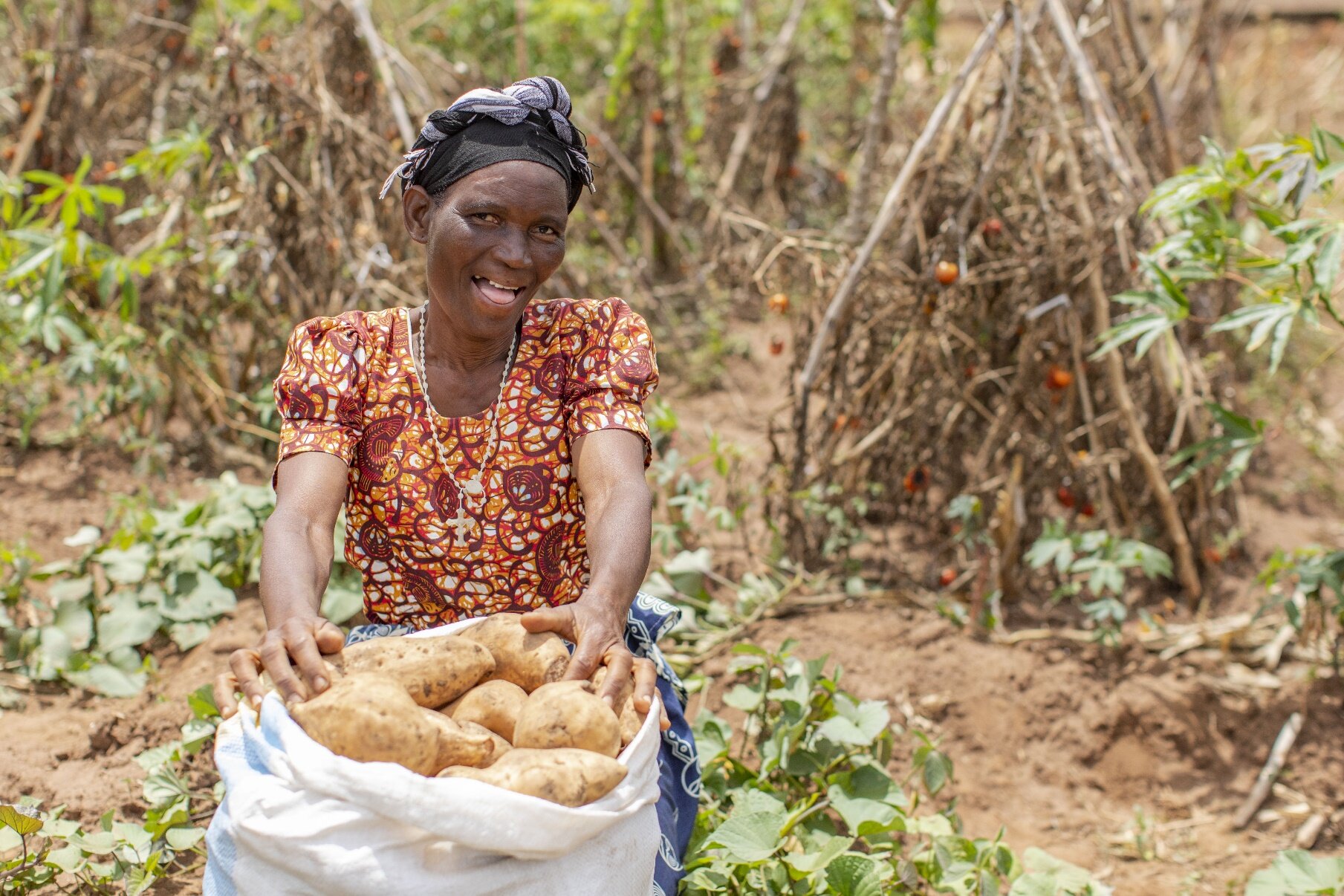Margret Chirwa is a 48-year-old farmer who lives in a small village in Malawi’s Thyolo District. Life has been tough for Margret, as she has had to raise two children on her own.
“I was doing work in other people’s fields from about 6am until 5pm, earning only between MK300 and MK500 (~0.36 and 0.60 euros) per day. I would get home tired and hungry and find my children hungry too,” Margaret explains. “I had a lot of problems back then and sometimes even had to beg for food from friends.”
Margret’s youngest son, Precious, was born with severe physical and learning difficulties. Sometimes, paying for transport to the hospital meant choosing which day not to eat.
However, Margaret’s life changed for the better when she joined United Purpose’s DIVERSIFY project and started cultivating orange-fleshed sweet potatoes.
“These potatoes have changed our lives,” she says, proudly showing off part of her latest crop. “At first we just used them for food but in the second year I started selling them and was able to buy goats and pigs from the profit.”
“Life has become so much easier and the doctors even told me that there has been a noticeable improvement in my son’s health. Finding money for the day-to-day basics like soap and even food is not a problem for me anymore,” says Margret, smiling.
Margaret showing the samosas she makes herself and sells at the local market
Part of the success of the DIVERSIFY project is the extensive training provided to the participants, focusing on solid agricultural practices that can help mitigate the increasing issues brought about by climate change. Water conservation, crop rotation, vine multiplication and the use of organic fertilisers, are just some of the many new ways that the group are achieving higher yields and most importantly, more profit.
With the extra time and money Margaret now has, she has started a small business making and selling samosas in the local market and has invested the profits into a Village Savings and Loans group, another initiative promoted by the DIVERSIFY project.
“I’m really thankful to UP and our extension officers for all the training and knowledge they have given us,” she beams. “As a single parent, I have now learnt to be self-reliant and can see the difference in how I can now support myself. I’m excited to plant again this season and am even thinking about producing doughnuts, fritters and juices to sell once I get some more capital.”
Context
Margaret is one of the 2,398 women farmers taking part in the Developing Integrated Value chains to Enhance Rural Smallholders’ Incomes and Food security Year Round (DIVERSIFY) project funded by the European Union, through the National Authorising Office of the Ministry of Finance, and co-financed by the Australian government through Action on Poverty. The project aims to contribute to poverty reduction and improved livelihoods of smallholder farmers in Malawi through increased, diversified, stronger orange-fleshed sweet potato and pigeon pea value chains, and better market access.


